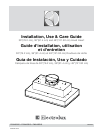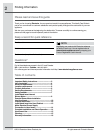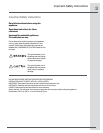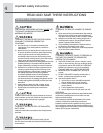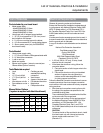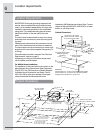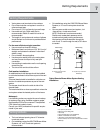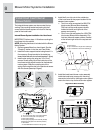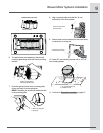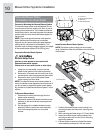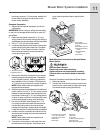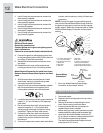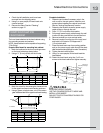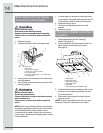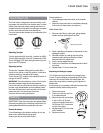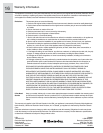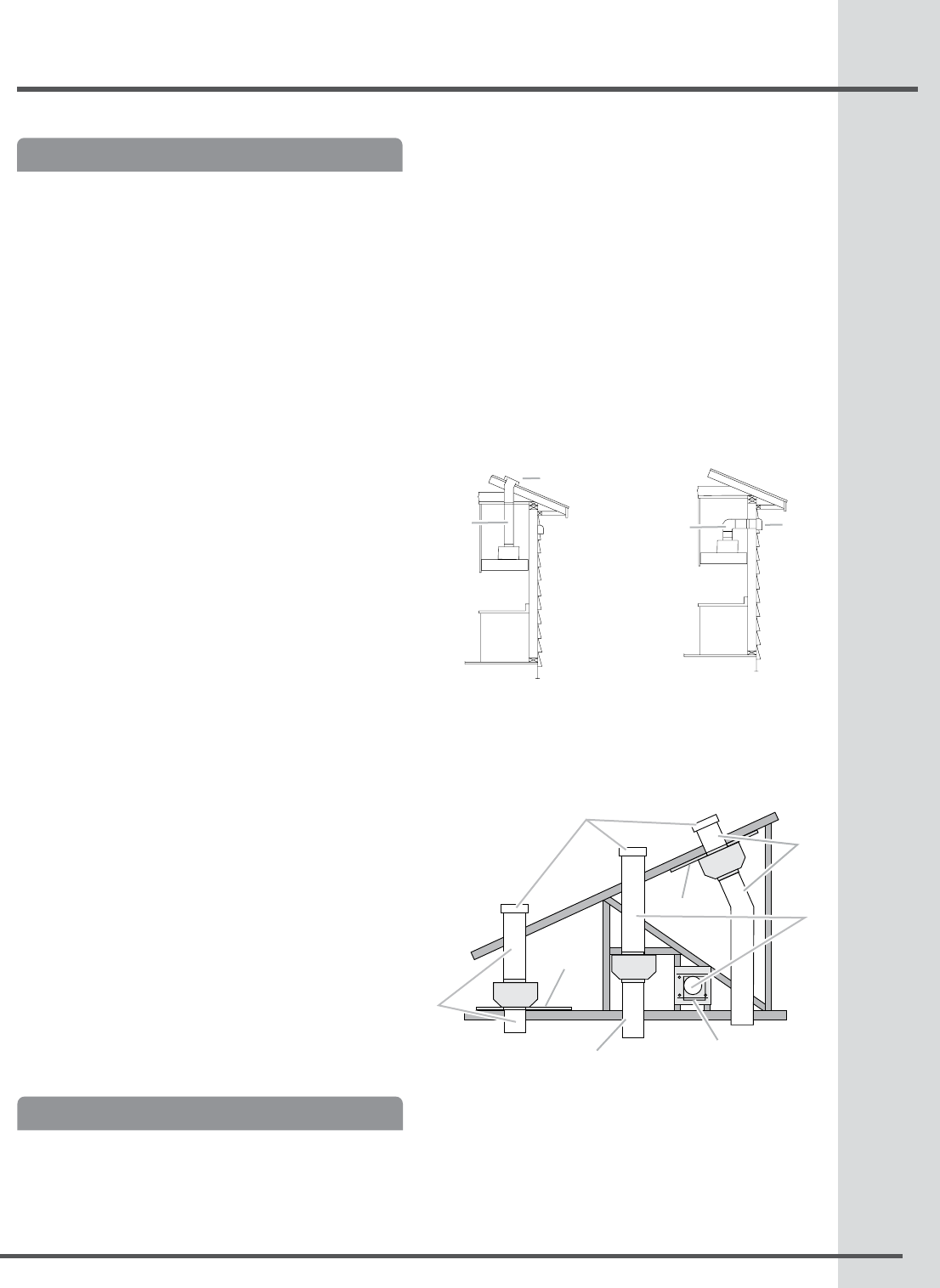
7
Vent system must terminate to the outdoors.
Do not terminate the vent system in an attic or
other enclosed area.
Do not use 4” (10.2 cm) laundry-type wall caps.
Use metal vent only. Rigid metal vent is
recommended. Plastic or metal foil vent is not
recommended.
The length of vent system and number of elbows
should be kept to a minimum to provide efcient
performance.
For the most efcient and quiet operation:
Use no more than three 90° elbows.
Make sure there is a minimum of 24” (61.0 cm) of
straight vent between the elbows if more than 1
elbow is used.
Do not install 2 elbows together.
Use clamps to seal all joints in the vent system
and use furnace duct tape to fully seal joint
connection.
Use caulking to seal exterior wall or roof opening
around the cap.
The size of the vent should be uniform.
Cold weather installations
An additional back draft damper should be installed
to minimize backward cold air ow as part of the vent
system.
A thermal break should be installed to minimize con-
duction of outside temperatures as part of the vent
system.
The damper should be on the cold air side of the
thermal break.
The break should be as close as possible to where the
vent system enters the heated portion of the house.
Makeup air
Local building codes may require the use of makeup
air systems when using ventilation systems greater
than specied CFM of air movement. The specied
CFM varies from locale to locale.
Consult your HVAC professional for specic require-
ments in your area.
Venting Methods
The hood exhaust opening has a 10” diameter
round vent outlet.
On installations using the 600 CFM Blower Motor
Systems, a 6” or 8” round vent system is
recommended.
•
•
•
•
•
•
•
•
•
•
•
•
•
Venting Requirements
Venting Requirements
On installations using the 1200 CFM Blower Motor
Systems, a 10” round vent system should be
used.
You can use a smaller round vent system , but
there will be a louder sound level.
NOTE: Flexible vent is not recommended.
Flexible vent creates back pressure and air
turbulence that greatly reduce performance.
Vent system can terminate either through the
roof or wall. To vent through the wall, a 90° elbow
is needed.
Typical Remote Blower Motor System Venting
Installations
A. 10” (25.4 cm) round vent
B. Mount on top of ceiling joists.
C. Roof caps
D. Plywood (optional for some installations)
E. Mount on underside of roof rafters.
F. Mount from cross-members tied to trusses.
G. Duct horizontal; mount to cross-members tied to trusses.
H. Wall cap
•
•
A
B
B
A
Roof venting
A. 10” (25.4 cm) round vent
B. Roof cap
Wall Venting
A. 10” (25.4 cm) round vent
B.Wall cap
F
G
D
A
A
B
C
D
A
A
H
E



